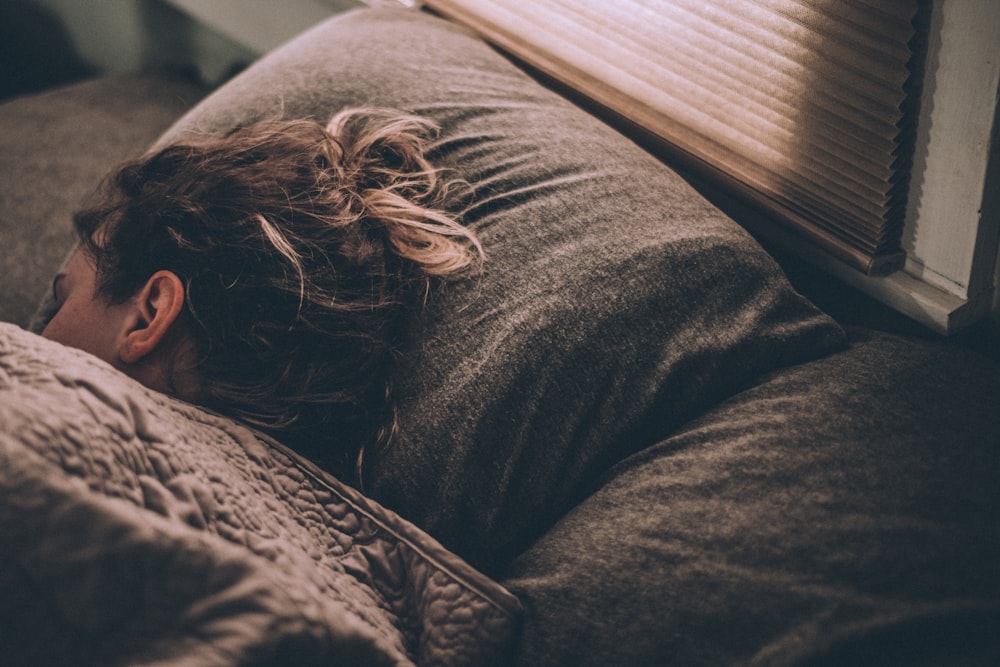Cover photo by Finn Hackshaw on Unsplash
Written by Anasteece Smith
Feeling overwhelmed? Exhausted? Irritable? Discouraged? Stressed?
You are not alone. We are living in unprecedented times, and that tends to stress us out. A lot of the outlets that we may normally use to cope with our stress have been restricted or taken away and that makes it harder to maintain fluctuating levels of stress.
Let’s talk about some ways you can better manage your stress, because, as a professor of mine would so lovingly remind me, “stress management is life management.”
Prioritize
When we’re stressed, it can be really hard to figure out what we need to do and how to accomplish it. What things absolutely have to get done and what things can wait? There is a wide variety of resources out there to help answer this question, such as the Covey Quadrant Method, the prioritized to-do list, Productivity Boot Camp, etc. My personal favorite is the sticky note method, which essentially gives you a visual representation of what you’ve accomplished.

The sticky note method goes like this (Wheeler, 2019):
-
Get a pad of sticky notes
-
Write down what you need to get done, one task per sticky note
-
Make sure that when you write the task you are specific. For example, “spend 30 minutes trimming the bushes” instead of “yard work”
-
Once you have the tasks you need to get done written out, take the sticky notes and put them somewhere you can see them in order from most important to least important
-
When you finish a task, take the sticky note off and throw it away
If you don’t finish all of the tasks by the end of the day, that’s okay! Rarely do we finish everything we intend to accomplish all in one sitting. Leave the sticky notes up and then keep working on them the next day.

Self-Care
We have talked a lot about self-care here at the Healthy Humans Project, and that’s because it is so important! Being stressed out all the time often leaves us feeling like we don’t have the time or energy to take care of ourselves, but it’s absolutely vital that we do. It may seem more important to get those dishes done or disinfect the high-touch services for the third time this week, but this will ultimately leave you feeling tired and even more exhausted than before. Make the time each day to take care of yourself. That doesn’t mean you have to take three hours for self-care! Your self-care is going to look different depending on your current level of stress, and on your needs for that day (Gordon, 2019). One day it may be taking 20 minutes to watch an episode of your favorite show, doing a face mask, or even taking a nap. Other days you’ll have more time to take that bubble bath or watch that movie on your watch list. What matters is that you are taking the time to take care of yourself.
Exercise
Exercise is one of the best forms of stress relief. The type of exercise you choose doesn’t really matter, what matters that you move your body on a daily basis. Find what makes you feel good! Moving your body can mean dancing in the kitchen to blasting music, going for a run, doing a workout video from YouTube, or going to the gym (if, you know, that’s an option). Exercise has many benefits for stress. When you exercise your body naturally releases endorphins (sometimes known as a runner’s high), which makes you feel happier. When you exercise consistently it can boost your mood and help with mild depression and anxiety (Exercise and Stress, 2018).

Additionally, exercise is great for helping ease the body’s response to stress. Our bodies have two major nervous systems that govern a wide variety of physiological responses, known as the parasympathetic and the sympathetic nervous systems. The parasympathetic system is commonly referred to as the “rest and digest” system, and the sympathetic as the fight, flight or freeze response. When we are stressed, our body triggers the sympathetic nervous system, causing muscle tension, a racing heart, and adrenaline release throughout the body to prepare for fight, flight or freeze. As we exercise, our body is able to use this stress response to actually benefit our body by building muscle and strengthening our cardiovascular system. It also helps to regulate our body’s stress response. Check out this video here, and this one here if you would like to learn more.
Sleep
Stress can impact our ability to sleep, which is problematic because we also need sleep to help combat stress! While we sleep, our bodies do maintenance to repair and heal our bodies, as well as helping with memory consolidation (Stress and Sleep, 2013). When we are stressed, we often don’t get enough sleep, leaving us tired or even more stressed (anyone else stress how much sleep they aren’t getting??). Most often, stress leaves us unable to get high-quality sleep, which then affects our mood and our ability to cope with life.
We need to make sure that we are getting at least 8 hours of sleep at night regardless of age (kids, babies and teens are in the group that needs more than that). Thankfully, there are some things we can do to help us sleep better. First, establish a routine around bedtime. For example, take a shower, brush your teeth, read for 30 minutes, and then go to sleep. Sticking to a routine signals to the body that it is time to go to sleep. Second, turn off electronics two hours before bedtime. Blue light is notoriously known for interfering with the ability to sleep. Or, if you have to use a device, switch it to night mode where it turns down how much blue light your screen emits. Third, save the bed for sleeping and sex with your partner. The less we do in bed, the more the brain will associate it with sleeping, making it easier to actually get sleep. (How to Sleep Better, 2020)
Mindfulness—Breathing
Mindfulness and its various practices have endless benefits. But I want to talk specifically about breathing because it’s one of the most underrated stress management techniques. As we all know, we have to breathe in order to survive. But our breathing has a greater effect on our bodies than we sometimes realize. Our breathing has the ability to help calm the sympathetic nervous system (remember that fight, flight, freeze response?) by lowering our heart rate, relaxing our muscles, and helping us get back to our thinking brain.
Here is an easy breathing technique you can try, taught by LMFT Tammy Hill:
-
Close your eyes and sit comfortably
-
Inhale for three counts
-
Hold at the top for three counts
-
Exhale for three counts
-
Repeat as needed
Connect
“We are neurobiologically hardwired for connection with other people. In the absence of connection, love, and belonging, there is always suffering.”– Brené Brown, Netflix Special The Call to Courage
We are hardwired for connection, and that connection helps us to deal with our stress. We need other people to talk to, to vent to, to support, and to support us. Being around others and interacting with others helps to ease the stress of everyday life. When we feel we have people we can turn to, or know that we have people supporting us, we can get through difficult times because we know we are loved regardless of our personal successes or failures. While it may not be possible to connect with people in person right now, we can video chat, text, call, write letters, etc. to keep connected with others.

For me personally, it has been so hard to not have in-person interaction with people outside of my spouse. Yes, I have been able to video chat and text, but it’s not the same as sitting down with friends at a restaurant or participating in in-person church services. It feels isolating to sit behind a screen and not be able to give someone a hug or be there for them when it feels like everything is falling apart for them or to be able to celebrate a graduation or marriage. Just know that if you are struggling too, you are not alone.
Gratitude
Sometimes in the mounds of stress, it’s easy to forget that there is more to life than just getting our to-do list done. Being grateful doesn’t take a lot of time,. It can simply be saying, “Today I am grateful to be alive,” or “I’m grateful that I got out of bed today.” It can be sitting down at the end of the day and writing down three things you’re grateful for in a journal. These few moments may seem insignificant, but they can literally re-wire our brains. Research has found that people who keep a gratitude journal see a decline in perceived stress in as little as two weeks, meaning that when we are grateful we see things more as they truly are rather than just what we are stressed about (UC Davis Health, 2015). As we look for things to be grateful for, our perspective shifts and it makes it easier to cope with our day-to-day lives. So, right now, pause to write down three things you’re grateful for, send a text saying thank you to someone, and remember that life won’t always be like this!

Self-Compassion
Finally, when we are stressed, one of the most important things we can do is to remember to have compassion for ourselves. Often, we won’t get everything done that we would like to, and that’s okay! Some days we won’t get anything done because stress, mental health etc. require us to step back and take a do-nothing day to take care of ourselves. When those days and moments come, it’s imperative that we have compassion for ourselves. It’s okay to step back and say, “I’m struggling right now and so are others. I can be mindful of my emotions and acknowledge them without being consumed by them. I can be kind and understanding to myself regardless of whether I got everything done that I would have liked.” Self-compassion is a powerful principle! If you’d like to learn more about it, I would recommend checking this Ted Talk by self-compassion researcher Kristin Neff.
Don’t let your stress get the best of you. Take things a day at a time, don’t give up, and be kind to yourself. We’re all figuring this out, and we’ll make it through together!
For more ways to cope with distress, check out The Relaxation and Stress Reduction Workbook from the New Harbinger Institute.
 Choose one of the strategies listed in this article to implement into your life this week to help you better manage your distress.
Choose one of the strategies listed in this article to implement into your life this week to help you better manage your distress.
References
Brown, B. (2019). The Call to Courage [Video file]. Retrieved August 24, 2020, from https://www.netflix.com/title/81010166
Exercise and stress: Get moving to manage stress. (2020, August 18). Retrieved August 24, 2020, from https://www.mayoclinic.org/healthy-lifestyle/stress-management/in-depth/exercise-and-stress/art-20044469
Gordon, R. (2019, August 29). Self-Care for Busy Humans. Retrieved August 24, 2020, from https://www.healthyhumansproject.com/self-care-for-busy-humans/
How to Sleep Better. (2020, August 13). Retrieved August 24, 2020, from https://www.sleepfoundation.org/articles/healthy-sleep-tips
Stress and Sleep. (2013). Retrieved August 24, 2020, from https://www.apa.org/news/press/releases/stress/2013/sleep
UC Davis Health, P. (2015, November 25). Gratitude is good medicine. Retrieved August 24, 2020, from https://health.ucdavis.edu/medicalcenter/features/2015-2016/11/20151125_gratitude.html
Wheeler, C. (2019, May 20). How to Get Way More Done Using the Sticky Note Technique. Retrieved August 24, 2020, from https://academysuccess.com/sticky-note-technique/








